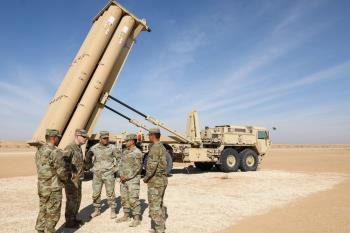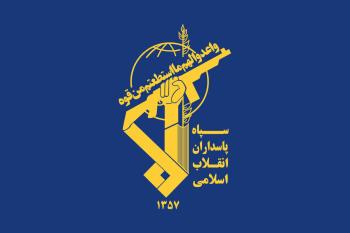Alwaght- The Herzliya Conference is a major debate event held by the Israeli regime every year. Initiated in 2000 following an idea proposed by Uzi Arad, the former Mossad officer and a present strategist, the conference is hosted by the Herzliya, a coastal city in the occupied Palestinian lands.
Organized by the Institute for Policy and Strategy (IPS), the gathering seeks helping Tel Aviv boost the national security of the Israeli regime.
This year, the conference was held between June 20 to 22, with intention to help the Israeli policy-making process for bolstered strategic decision-making, according to this year's organizers.
The Herzliya Conference is in fact can be seen as a main reference of decisions of the different Israeli governments. According to the schedule, this year event's agenda covered the “Middle East, global landscape, and domestic arena.”
One main topic for discussion was this: The Iran Threat and the Radical Axis: Is Israel prepared?
The 17th conference title was: Israel's Strategic Balance Ahead of the 70th Year of Independence: Opportunities and Risks.
The event was attended by over 180 military, political, and security figures from the Israeli regime and foreign countries. Additionally, some academic, media, and judicial officials from the Israeli regime and abroad joined the two-day Herzliya Conference. The most important issues around this year's conference can be organized under four categories:
1. Fatah movement attendance and other Palestinian groups' protest
A notable issue during this year’s conference has been presence of Fatah movement figures and a delegation sent by the Palestinian Authority. The attending by the Palestinian group is coming as during the recent months and particularly after Trump’s assumption of power in the US and his May visit of Saudi Arabia, the debate of two-state solution and Arab-Israeli diplomatic normalization became highly heated.
Following the warming talks about the peace with the Israeli regime, Mahmoud Abbas, the leader of Fatah movement and president of the Palestinian Authority, met with the American leader in Ramallah. And now, the Fatah representatives attended the Israeli strategy conference.
Fatah measures drew strong protest from other Palestinian groups such as Hamas movement and the Islamic Jihad. Blasting Fatah for sending its delegation to Herzliya Conference, these factions have called the move “a stab in the back” of the Palestinian nation after all of sacrifices.
Abdel Latif al-Qanou, the spokesman to the Hamas, has said that “Palestinian Authority and Fatah members going to Herzliya for the Israeli conference was “a stab in the back of the Palestinians after their resistance and sacrifices and is a disregard of their daily pains and plight as an outcome of unceasing crimes committed by the Israeli regime. Al-Qanou further noted that Palestinian Authority attendance at the conference was “in conflict with” the national Palestinian consensus on boycotting the Israeli regime and confronting it. The Hamas spokesman added that Tel Aviv takes advantage of the conference for strengthening its national security, instilling racism, and committing further anti-Palestinian crimes.
2. Promoting Hezbollah as main threat to Israeli security
One of the main agendas of the Israeli conference was highlighting the so-called Lebanon's Hezbollah risks to the Israeli regime's security. The key speakers of the event including the head of the IPS General Amos Gilad, who is the former director of the politico-military affairs at the Ministry of Public Security, and Lieutenant General Gadi Eizenkot, the chief of general staff of the Israeli Defense Forces, during their speech repeatedly pointed to the role of Hezbollah, Iran and Syria in the region. They also brought in spotlight the Israeli relations with the Arab countries.
The speakers of the conference shared the idea that Hezbollah could pose serious threats to the Israeli regime, especially that as a result of its recent years' presence in the Syrian war it collected further battle experiences. lieutenant General Eizenkot during his speech, the transcript of which was published online by the IPS, said that the Lebanese movement is the key risk to Tel Aviv as it grows stronger than before and now holds in its depots tens of thousands of rockets. He further said that the Israeli army is trying to block modern weapons deployment to Hezbollah.
“Hezbollah is a strategic threat to the domestic Israeli front. It is growing more equipped and armed day by day,” Gilad was quoted as saying.
3. Focusing on containing Iran’s regional power
Another most focused issue at the conference was Iran’s growing regional power and the need to curb it. The participants, all gathering to offer pathways to the Israeli policy, have emphasized on the necessity to stop Tehran from growing stronger which means a main, immediate threat to Tel Aviv.
The Lebanon-based Al-Mayadeen news network quoted Eizenkot as saying that prevention of Iran’s arming advances is a security intention for all of the regional countries. The Israeli chief of general staff also pointed to the Iranian missiles fired against the ISIS terrorists' positions in Syria’s Deir ez-Zor, saying that this move carried a specific message.
Therefore, tackling Iran’s increasing clout as a main aim of the Israeli regime and some Arab states was an issue agreed upon by the speakers.
4. Highlighting the need for Israeli-Arab cooperation
Another leading issue dominating the Herzliya Conference was the Israeli invitation of the Arab officials to visit the Israeli regime. The Israeli Minster of Transportation and Intelligence Yisrael Katz during his speech at the gathering called for the Arab countries to normalize diplomatic relations with Tel Aviv. He further demanded that Saudi Arabia invites the Israeli Prime Minister Benjamin Netanyahu for Riyadh visit.
"I call upon Salman, the King of Saudi, to invite the Prime Minister of Israel Netanyahu to visit Saudi Arabia," he was quoted as saying.
He added that Tel Aviv needs to suggest to Saudi Arabia and the Persian Gulf Arab states security and intelligence cooperation meant to stop Iran and its allies beside a gradual diplomatic normalization process.
He, moreover, suggested a “regional security axis beside regional economic peace”, adding that if Tel Aviv is strong, the Arabs will be strong, and if they grow strong together, Iran will be weak.
This year's Herzliya Conference themes indicate that Tel Aviv is undergoing a fundamental change in terms of its security and political approaches. Promoting the Iranian dangers to the Arab world through a well-organized Iranophobia propaganda campaign, the Israelis seek establishing full diplomatic ties with the Arab countries for the first time since the Israeli regime birth. Understanding the Arab regimes' desire for countering the so-called Iranian threats in the region, the Israeli leaders want to make the most of the opportunity to get the Arabs to Tel Aviv side.



























